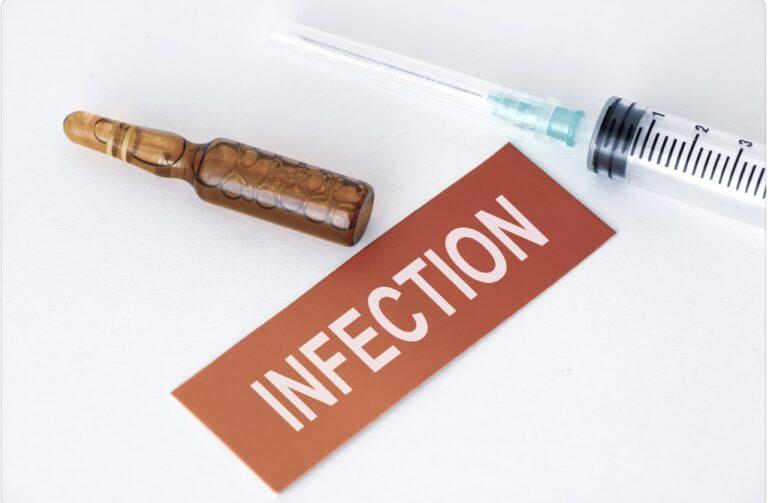
Upper respiratory tract infections (URTIs) are among the most common health concerns faced by individuals of all ages, ranging from the common cold to more severe conditions like sinusitis and epiglottitis. While these infections are often mild and self-limiting, the appropriate use of antibiotics is crucial in managing the more serious cases and preventing the development of antibiotic resistance.
However, the complex nature of URTIs, coupled with the overlapping symptoms of viral and bacterial causes, has led to inappropriate antibiotic prescribing in primary care settings. This not only contributes to the global crisis of antimicrobial resistance but also raises the risk of adverse effects and unnecessary healthcare costs.
Here, we will delve into antibiotic prescribing for URTIs, the best options available, and the role of healthcare providers in promoting responsible antibiotic use.
Defining upper respiratory tract infections (URTIs)
Upper respiratory tract infections (URTIs) are a group of acute infections that primarily affect the upper part of the respiratory system, including the nose, sinuses, pharynx, larynx, trachea, and bronchi. These infections can be caused by a variety of pathogens, mainly viruses, but also occasionally by bacteria.
The most common URTI conditions include:
- Common cold: A viral infection that typically causes a runny nose, sneezing, sore throat, and cough
- Rhinosinusitis: An inflammation of the nasal and sinus cavities, often resulting in nasal congestion, facial pain, and headaches
- Pharyngitis/tonsillitis: Also known as a sore throat, this condition involves inflammation of the pharynx, commonly caused by viral or bacterial infections
- Laryngitis: An inflammation of the larynx, or voice box, leading to a hoarse voice or even complete loss of voice
- Otitis Media: An infection of the middle ear, which can be either acute or chronic
While these infections are often self-limiting and resolve within 7-10 days, they can lead to more serious complications, such as respiratory failure, if left untreated or managed inappropriately.
Groups that are at high risk of URTIs
Upper respiratory tract infections are among the most prevalent health conditions worldwide, affecting individuals of all ages. However, certain populations are at high risk of developing these infections, including:
- Young children: Children, especially those in daycare or school settings, are more susceptible to URTIs due to their developing immune systems and increased exposure to infectious agents
- Older adults: Elderly individuals, particularly those with underlying chronic conditions
- Immunocompromised individuals: Patients with weakened immune systems, such as those with HIV/AIDS, cancer, or organ transplants
Viral vs. bacterial causes of URTIs
Despite URTIs predominantly being caused by viruses, the inappropriate use of antibiotics for these conditions remains a significant concern globally. Studies have highlighted the alarming rates of antibiotic prescribing for URTIs in primary care settings, often exceeding recommended guidelines.
Understanding the underlying causes of upper respiratory tract infections is crucial in guiding appropriate antibiotic prescribing. While the vast majority of URTIs are caused by viral pathogens, a small percentage can be due to bacterial infections.
Viral URTIs
Viruses, particularly the rhinovirus, are responsible for up to 90% of URTI cases. Viral infections typically present with symptoms such as a runny nose, sneezing, sore throat, and cough, and are generally self-limiting, resolving within 7-10 days without the need for antibiotic treatment.
Bacterial URTIs
Bacterial causes of URIs, though less common, can include:
- Streptococcus pneumoniae: A leading cause of bacterial sinusitis and acute otitis media
- Haemophilus influenzae (H. influenzae): Another common pathogen associated with sinusitis and otitis media
- Moraxella catarrhalis: Common pathogen of sinusitis and otitis media
- Group A Streptococcus: The primary bacterial cause of pharyngitis, also known as strep throat
Bacterial URTIs are typically characterised by more severe and persistent symptoms, such as high fever, severe sore throat, and significant ear or nasal discharge. In these cases, antibiotics may be prescribed to prevent complications and aid recovery.
Diagnosing URTIs
Differentiating between viral and bacterial upper respiratory infections can be a challenge for healthcare providers, but duration and severity of symptoms, as well as the presence of specific clinical signs, can guide the diagnostic process.
To address this challenge, several organisations have developed guidelines to assist in the diagnosis and management of upper respiratory tract infections. These guidelines emphasise the importance of considering the patient’s age, symptom severity, and risk factors, as well as diagnostic tests, such as a throat swab to test for strep throat.
Antibiotic overuse
Promoting the responsible use of antibiotics for upper respiratory tract infections is a critical component of antimicrobial prescribing. The overuse and misuse of antibiotics for URTIs contribute to the growing problem of antibiotic resistance, which poses a significant threat to public health.
Appropriate antibiotic prescribing for URTIs
According to evidence-based guidelines, antibiotics should be reserved for URTI cases where there is a clear bacterial cause such as:
- Acute bacterial sinusitis: Antibiotics such as, amoxicillin or amoxicillin-clavulanate may be indicated for persistent, worsening, or severe cases of sinusitis
- Streptococcal pharyngitis: Antibiotics such as, penicillin or amoxicillin are recommended for the treatment of group A Streptococcus-induced pharyngitis
- Acute otitis media: Antibiotics such as, amoxicillin or amoxicillin-clavulanate may be prescribed in pediatric patients with severe symptoms or those at risk of complications
For the majority of viral URTIs, such as the common cold, antibiotic treatment is not recommended, and symptomatic management with over-the-counter medications, rest, and hydration is the preferred approach.
Antibiotic selection for URTIs
When antibiotics are indicated for the management of upper respiratory tract infections, the selection of the appropriate antibiotic therapy is crucial. Factors such as the pathogen, patient characteristics, and local resistance patterns should guide the choice of antibiotic.
Amoxicillin and amoxicillin-clavulanate
Amoxicillin, either alone or in combination with clavulanate, is often considered the first-line antibiotic for the treatment of bacterial URTIs, such as acute sinusitis and otitis media. These antibiotics are effective against common respiratory pathogens, including Streptococcus pneumoniae, Haemophilus influenzae, and Moraxella catarrhalis.
Macrolides
Macrolide antibiotics, such as azithromycin, doxycycline and erythromycin, are an alternative option for patients who are allergic to or cannot tolerate penicillins. Macrolides are effective against Streptococcus pyogenes, the primary cause of streptococcal pharyngitis.
Cephalosporins
Cephalosporin antibiotics, second-generation oral cephalosporins (cefuroxime-axetil) and some third-generation cephalosporins (cefpodoxime-proxetil, cefotiam-hexetil) are recommended for the treatment of URTIs when there is a concern for antibiotic resistance, or when the patient cannot tolerate penicillins or macrolides.
Quinolones
Fluoroquinolone antibiotics, such as levofloxacin and moxifloxacin, are generally reserved as a last resort for the management of URTIs, particularly in cases of suspected or confirmed antibiotic-resistant infections.
The choice of antibiotic should also consider factors such as the patient’s age, co-morbidities, and local antibiotic resistance patterns, to ensure the most appropriate and effective treatment.
Antibiotic resistance and URTIs
The inappropriate and excessive use of antibiotics for upper respiratory tract infections has contributed significantly to the global crisis of antimicrobial resistance. As resistant strains of bacteria continue to emerge, the effective treatment of common infections, including URTIs, has become increasingly challenging.
Reasons for antibiotic resistance
Several factors have been identified as key drivers of antibiotic resistance in the context of URTIs, including:
- Overprescribing of antibiotics: The indiscriminate use of antibiotics for viral URTIs, where they provide no clinical benefit
- Not completing the antibiotic course: Patients who fail to complete the full course of prescribed antibiotics
- Availability and accessibility of antibiotics: The ease of access and over-the-counter availability of antibiotics in some regions, without proper medical supervision
Consequences of antibiotic resistance
The rise of antibiotic-resistant pathogens has a significant impact on the management of upper respiratory tract infections, leading to:
- Resistant bacteria are less susceptible to commonly used antibiotics, resulting in a higher risk of treatment failure and the need for alternative, often more expensive, antimicrobial options
- Untreated or ineffectively treated bacterial URTIs can lead to more severe complications, such as sinusitis, otitis media, and even life-threatening conditions like epiglottitis
- The need for more expensive and potent antibiotics, as well as the increased burden of managing complications, contributes to the rising healthcare costs associated with URTIs
Conclusion
Upper respiratory tract infections remain a common and often challenging problem, with the complex connection between viral and bacterial causes, alongside the rising threat of antibiotic resistance, resulting in the need for a varied approach to URTI treatment.
Sources
- Which treatment for upper respiratory tract infections? – PMC
- Upper Respiratory Infection: Symptoms, Contagious, Treatment
- Prescribing Patterns for Upper Respiratory Tract Infections: A Prescription-Review of Primary Care Practice in Quetta, Pakistan and the Implications – PMC
Medical Disclaimer
NowPatient has taken all reasonable steps to ensure that all material is factually accurate, complete, and current. However, the knowledge and experience of a qualified healthcare professional should always be sought after instead of using the information on this page. Before taking any drug, you should always speak to your doctor or another qualified healthcare provider.
The information provided here about medications is subject to change and is not meant to include all uses, precautions, warnings, directions, drug interactions, allergic reactions, or negative effects. The absence of warnings or other information for a particular medication does not imply that the medication or medication combination is appropriate for all patients or for all possible purposes.








